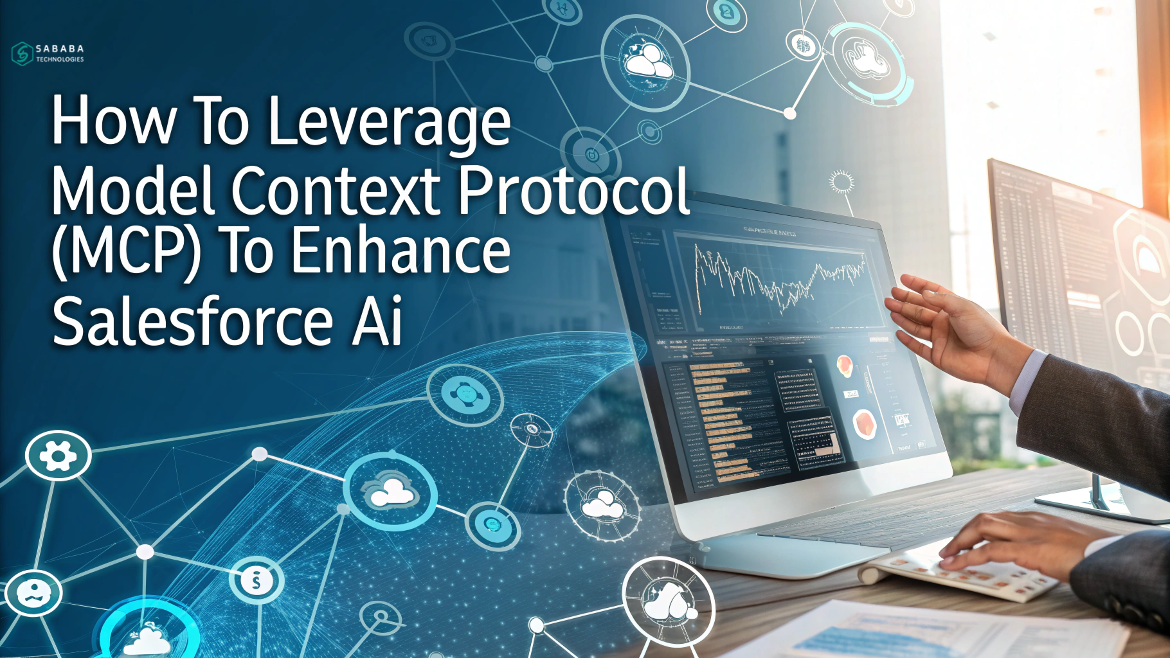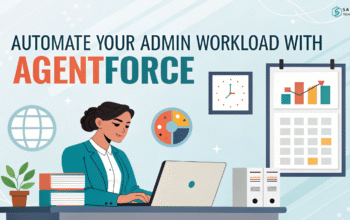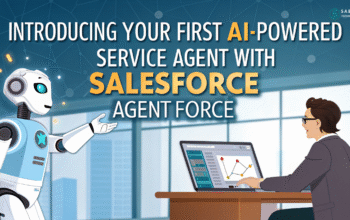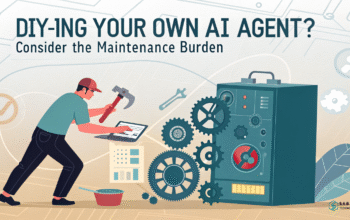Learn how MCP boosts Salesforce AI with seamless data integration, smarter automation, and real-time insights for better business outcomes.
In the fast-paced digital landscape, businesses are not only under constant pressure but also continually striving to deliver faster, smarter, and more personalized customer experiences. Moreover, Salesforce has long been a leader in this space, and in addition, it offers AI-driven solutions like Einstein and Agentforce that further enhance efficiency and innovation. However, the real magic happens when these tools can effortlessly connect to external systems — and that’s where MCP steps in.
What is Model Context Protocol (MCP)?
MCP is an open standard that is specifically designed to simplify how AI-powered platforms exchange data with other systems. In fact, you can imagine it as a universal connector that, consequently, eliminates the need for multiple custom integrations. Furthermore, with MCP, you can not only securely pull data but also trigger automated actions, and, as a result, streamline workflows while, at the same time, avoiding unnecessary complexity in development.
This framework works perfectly alongside Salesforce, bridging gaps between CRM operations and external tools like marketing platforms, cloud storage, and communication apps.
Why MCP is a Game-Changer for Salesforce AI
The combination of MCP and Salesforce creates a powerful environment for automation and decision-making. Traditionally, integrating Salesforce AI with external platforms meant building time-consuming API connections. Now, MCP removes that friction by providing a standardized way to exchange information.
With this approach:
- AI agents can fetch real-time data instantly.
- Workflows across multiple systems become seamless.
- Data security remains intact through established protocols.
Benefits of Integrating MCP with Salesforce AI
1. Real-Time Data Access
With MCP, your Salesforce AI agents can tap into live information from inventory systems, marketing platforms, or customer databases — making decisions faster and with more context.
2. Unified Automation
Instead of jumping between tools, agents can complete multi-step tasks in one go. For example, they could update a Salesforce record, send a Slack message, and schedule a follow-up meeting, all in one workflow.
3. Smarter Insights
When MCP feeds external context into Salesforce AI, the system delivers more accurate recommendations, whether it’s prioritizing a sales lead or suggesting the next customer touchpoint.
Practical Use Case: AI-Powered Case Prioritization
Consider a support team using Salesforce Service Cloud. An urgent case comes in through email.
- MCP captures customer history, sentiment, and urgency level.
- AI evaluates the details and scores the priority.
- Salesforce automatically assigns the case, alerts the right agent, and starts an SLA timer.
The result? Faster response times and happier customers.
Overcoming Challenges in MCP-Salesforce Adoption
Adopting MCP in Salesforce isn’t without hurdles:
- Learning Curve: Teams may need to understand MCP’s architecture before reaping the full benefits.
- Security: Enterprises must ensure strict access controls and encryption.
- Scalability: As adoption grows, performance management becomes critical.
Still, the payoff in agility and efficiency far outweighs the challenges.
Final Thoughts
By integrating MCP with Salesforce, organizations unlock a new level of AI performance. From faster decision-making to more efficient workflows, this pairing helps businesses stay competitive in an increasingly connected world. If you want AI that understands context, acts faster, and works across platforms, MCP and Salesforce together are the way forward.
FAQs
1. What is it in AI?
It is a standard that lets AI connect easily with external systems, enabling faster and smarter automation.
2. How does it improve workflows?
It allows AI agents in Salesforce to access real-time external data, automate multi-step tasks, and deliver more accurate insights.
3. Is MCP secure for enterprise use?
Yes, it supports robust protocols like OAuth to ensure safe data exchanges between platforms.
4. Do I need special skills to implement it?
Some technical knowledge is required, but existing teams familiar with APIs and Salesforce development can adapt quickly.
5. Can MCP work with other Salesforce products?
Absolutely. From Sales Cloud to Service Cloud, it can enhance any AI-powered solution.
Feeling more like puzzles than solutions? That’s when Sababa steps in.
At Sababa Technologies, we’re not just consultants, we’re your tech-savvy sidekicks. Whether you’re wrestling with CRM chaos, dreaming of seamless automations, or just need a friendly expert to point you in the right direction… we’ve got your back.
Let’s turn your moments into “Aha, that’s genius!”
Chat with our team or shoot us a note at support@sababatechnologies.com. No robots, no jargon, No sales pitches —just real humans, smart solutions and high-fives.
P.S. First coffee’s on us if you mention this blog post!



